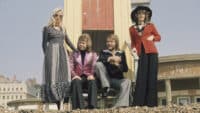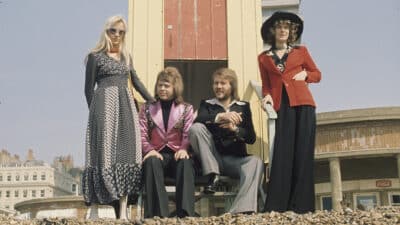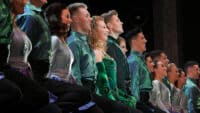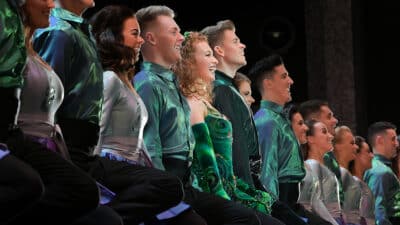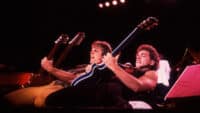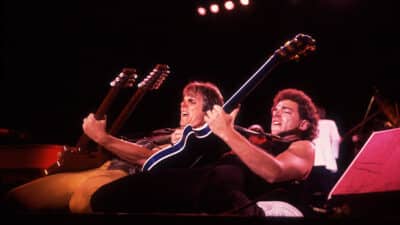Music
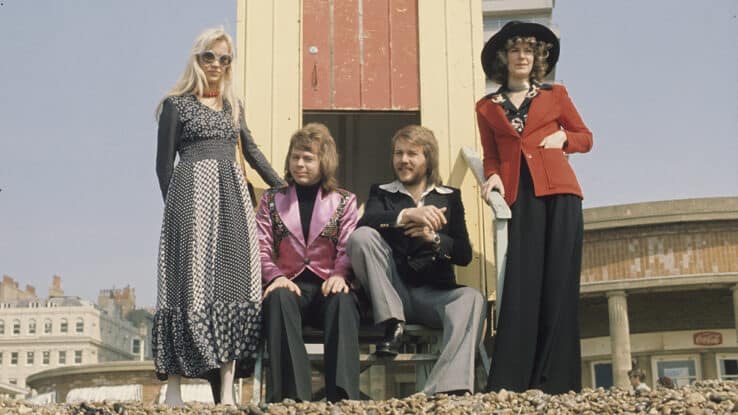
Looking Back
ABBA at the Eurovision Song Contest
The making of the world's most successful group, and the 2024 homecoming show that's set to mark pop's greatest anniversary
On Saturday 13 May 2023, Swedish pop singer Loreen made history when she became the first woman to win The Eurvision Song Contest twice. Dramatically staged and powerfully sung, ‘Tattoo’ swept the jury votes, with country after country announcing their twelve points for Sweden as Loreen looked on in disbelief.
But Loreen’s win also marked another Eurovision milestone: Sweden are now tied with Ireland for the country with the highest number of wins, and the 2024 contest will mark 50 years since ABBA first lit up the world stage.
ABBA were already stars in Scandinavia by the time they took to the Eurovision stage. In fact, they’d already had several swings at representing Sweden. Their most recent bid had been the previous year in 1973, when they’d entered Melodifestivalen, the national competition to select Sweden’s Eurovision entry. They group had sung ‘Ring Ring’, the title track of their debut record – and they didn’t win. Although the track wasn’t destined for Eurovision, it did do well in Scandinavia, as did the accompanying album. Still, the group and manager Stig Anderson knew that real success would come with a UK and US breakthrough, and the best place to achieve that was from the Eurovision stage. They began preparations for the following year.
When ABBA entered Melodifestivalen again in 1974, they were ready. There had been deliberation over what track to perform – an Agnetha solo entitled ‘Hasta Mañana’ was nearly entered – but it could never have been anything except ‘Waterloo’. Catchy, buoyant and widely appealing, the track was Eurovision perfection. More than that: it was pop chart fodder. Even before the Eurovision Song Contest kicked off, ‘Waterloo’ was charting in several European countries, and ABBA had become hotly tipped as an act to watch.
ABBA weren’t the only heavy hitters on the 1974 line-up. The UK were sending Olivia Newton-John, still four years away from her starring role in Grease, but a pop darling nonetheless. What’s more, they were playing at home, with Brighton hosting Eurovision (after the previous winners, Luxembourg, decided they couldn’t afford to have the show tow years in a row). Three albums down and a Grammy already under her belt, it was hoped that Newton-John would recreate the success of winning UK act Lulu five years earlier. She’d found an audience in the UK, Europe and the US – in short, she was exactly where ABBA wanted to be.
Sweden had already had a couple of strong bids for the top spot up before. Their closest near miss had been in 1966, when Lili Lindfors and Svante Thuresson came in second with ‘Nygammal vals’, a playful duet that told the story of a princess and swineherd who decide to switch lives. The song’s cheerful tune and Lili Lindfors’ fantastic facial expressions managed to take the song further up the leaderboard than Sweden had ever been before – but still not quite far enough to secure a victory.
With ‘Waterloo’, the war was over before the battle began. With conductor Sven-Olof Walldoff dressed as Napolean and Bjorn holding a guitar that looks like a Christmas ornament, the set-up is already intriguing enough. Then out run Agnetha and Anni-Frid. Dressed in outrageous satin creations and beaming from ear to ear, they couldn’t look more excited to be standing on the Eurovision stage. All four of them are elated, energetic, and young. They have a great song and they’re pleased to get the chance to sing it. Especially wearing silver boots.
Despite what felt like quite a bitter zero points from the UK (maybe in the hopes that it might allow Newton-John to pull ahead), ABBA triumphed in Brighton. A euphoric winners performance saw the group attack ‘Waterloo’ with twice the energy of before, Agnetha’s eyes glistening. As any good winners performance should, it displayed just how deserved the win was.
Forty-nine years later, ABBA’s presence is still felt at Eurovision. They’re in the gimmicks, the buoyant energy and the larger-than-life costuming. They are woven into the fabric of Loreen’s Scandinavian dance-pop. As Sweden prepares to host next year’s contest, speculation has already begun as to whether ABBA will make a physical appearance, fifty years after they first took to the Eurovision stage and changed the game forever. Either way, they’ll be in the room.
See ABBA perform for yourself at ABBA Voyage – with tickets available here.
Photo credit: Anwar Hussein / Getty




